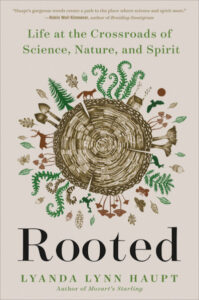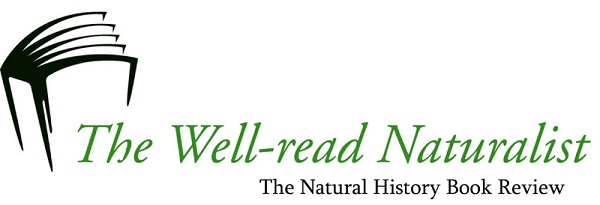A few years ago, after returning to corporate life and its associated business travel following seven ever-to-be-cherished years at home raising our daughter, I quickly began to find myself becoming… perhaps the best description would be disconnected. The hustle and bustle of the daily business world, and the particularly untethering frequent trips – largely by air – that took me not only across the U.S. but to the other side of the globe at times, often fractured the comforting domestic familiarity and rhythms of our family’s life at the edge of a forest in our Oregon small town home. Thinking this perhaps a spiritual as well as a psychological challenge, I looked to the religious tradition I had followed more or less since childhood for part of the solution, but all I found was an advocation of suffering until some unspecified future time. Life simply had to be more meaningful than what I was perceiving it to be.
As one who has long found a sense of solace in the natural world – both in the undirected experience as well as the purposeful study of it, I began to think that perhaps I was looking in the wrong places to find a path to restore my sense of balance and perspective in life. I was happy when working in and with nature – perhaps more accurately Nature – why not incorporate more of Her into my daily life? Long a student of natural history, I was well-versed in a number of its areas of study, and there was a veritable library of knowledge upon which I could draw from what I had already learned regarding shifting my perspective about matters both large and small.
Many of us, most certainly including myself, live our lives either unaware or willfully in opposition to what science has discovered about the world in which we live. Why not look to these discoveries for answers? I also knew there were traditions and practices that were far closer to the larger natural world than those I had long been following, but – and I hope this doesn’t sound too trite – what would other people think? Could looking to science as well as to a more holistic perception of Nature that ventured into the realms of “things unseen” be compatible? As Peter Gabriel so eloquently wrote in his inspiring song Solsbury Hill:
To keep in silence I resigned
My friends would think I was a nut
Turning water into wine
Open doors would soon be shut
So I went from day to day
Tho’ my life was in a rut
“Till I thought of what I’d say
Which connection I should cut
As regular readers of The Well-read Naturalist will likely already know, my first step across this arbitrarily-drawn line was in the discovery of Melissa Harrison’s brilliant quartet of essays and verses published by the British publishing firm of Elliott & Thompson. I took to reading these daily, and they quickly became something of a spiritual practice – a reminder of a world far larger than wherever I may happen to be at the moment; expansive far beyond the horizons I could at that time see. Taking them along with me in my travels, periods when I was primarily confined to airports, climate-sealed high-rise hotels, and over air-conditioned conference halls, was an absolute life-line!
I will spare you, my dear reader, from details of a number of other discoveries and subsequent changes to my life made following this period of questioning. Suffice it to state that after a few years of such practices, I found myself with a greatly enhanced perspective upon the world and my life in it; I was more connected to both the larger world and the intimate one I most closely shared with those around me. I was becoming much more rooted.
Thus when an advance copy of Lyanda Lynn Haupt’s most recent book Rooted; Life at the Crossroads of Science, Nature, and Spirit arrived in my post box, I was able to receive and read it in a way that I could not have only a few previous years ago. I would have likely found in her gentle, lyrical chapters that are filled with reminders of the myriad, intricately interwoven systems and cycles of the natural world dangerous challenges to the “thou must suffer and endure” system under which I had been trying – and failing – to reëstablish my life as an upstanding, serious-minded, profit-driven American businessman.
“But,” you may ask, “doesn’t she make her points sufficiently well to overcome such hard-mindedness?” No – but that isn’t her purpose in Rooted, nor is it her way in general. Yes, she is playing the tune to call us back to the garden, or perhaps more appropriately gardens in general, as well as forests, fields, meadows, and even – when necessary – small patches of opportunistic greenery poking through, or cushions of moss growing upon, urban pavements, but it is a tune we must be first willing to hear.
Of course, it is entirely possible that for some the preparation for hearing it may be found within the stories her essays contain, for in such she draws freely upon the discoveries of science, the interconnections of ecology, and a host of intangibles ranging from those things readily perceived by and often essential to the lives of other animals, plants, and fungi (the ultraviolet colors of blossoms to pollinating insects, the biochemical communications along the “Wood Wide Web” that connects mycelial networks throughout forests) but simply not perceptible to our limited senses, to those things that might be most effectively described as metaphysical or numinous. Perhaps this will be the gentle nudge needed for the song to be heard. For others who may not yet be ready; her words may, like a seed, lay dormant for a time, awaiting the right moment – the song of a thrush, the sight of a meteorite in the sky, the inexplicably symetrical-but-not pattern of frost on a windowpane – when all that is necessary for the tiny first root to emerge is present and the song to make itself heard.
Those familiar with Ms. Haupt’s previous books such as her Crow Planet: Essential Wisdom From the Urban Wilderness (which won the Sigurd Olson Nature Writing Award) or the one I so often hear referenced in discussions of her writings, Mozart’s Starling, will already well know that she is at her best when she is writing in the liminal spaces where the imposed conventional boundaries exert their weakest hold on the imagination, and in Rooted, she is at her finest in the dance of words she gracefully performs as she floats effortlessly between recent scientific discoveries, personal observations, references to works of literature, mythological tales, and physical practices – all woven together by words of heart-felt gentle encouragement.
There may be some – perhaps even my own previous self – that would be ready to pass Rooted by as a work too “new agey” for serious consideration. To these I would urge caution before doing so. As those who follow the developments of, and recent discoveries within, the sciences – from physics to biology – well know, we are beginning to uncover processes and phenomena at work in the world that only a short time ago would have been considered inconceivable or sheer madness even to declare in whispered words. Indeed, some of these are included in Rooted, but true to her form, Ms. Haupt doesn’t merely whisper them, she sings them in a voice that rings sweet and clear. All we need to do is listen and join with her – and all the ret of the planet – in the dance.
 Title: Rooted; Life at the Crossroads of Science, Nature, and Spirit
Title: Rooted; Life at the Crossroads of Science, Nature, and Spirit
Author: Lyanda Lynn Haupt
Publisher: Little Brown
Imprint: Spark
Format: Hardcover
Pages: 240 pp.
ISBN-13: 9780316426480
Published: May 2021
In accordance with Federal Trade Commission 16 CFR Part 255, it is disclosed that the copy of the book read in order to produce this review was provided gratis to the reviewer by the publisher.
Available from:

